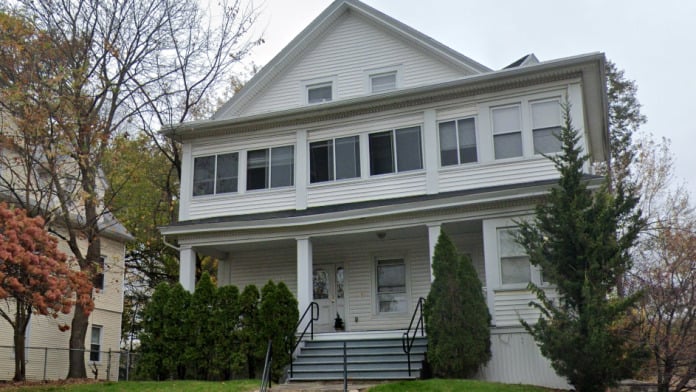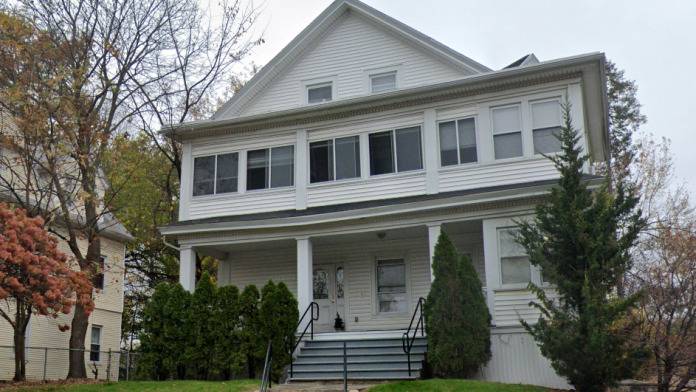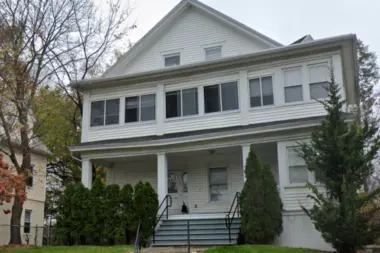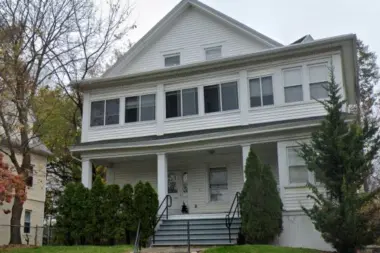First Christmas Eve here! I felt at home and not sad at all.
About My Sister’s House
Rehab Score
Gallery




Other Forms of Payment
Self-pay involves paying for treatment out of your own pocket. You can use savings or credit, get a personal loan, or receive help from family and friends to fund your treatment. If you don't have insurance or your insurance plan doesn't cover a specific program, self-pay can help ensure you still get the care you need.
Private insurance refers to any kind of healthcare coverage that isn't from the state or federal government. This includes individual and family plans offered by an employer or purchased from the Insurance Marketplace. Every plan will have different requirements and out of pocket costs so be sure to get the full details before you start treatment.
Medicare is a federal program that provides health insurance for those 65 and older. It also serves people under 65 with chronic and disabling health challenges. To use Medicare for addiction treatment you need to find a program that accepts Medicare and is in network with your plan. Out of pocket costs and preauthorization requirements vary, so always check with your provider.
Medicaid is a state based program that helps lower-income individuals and families pay for healthcare. Medicaid covers addiction treatment so those enrolled can use their coverage to pay for rehab. When a program accepts Medicaid the client often pays very little or nothing out of their own pocket.
Addiction Treatments
Levels of Care
The inpatient program at My Sister’s House provides medically monitored treatment, including medical evaluation, withdrawal management, and Medication-Assisted Treatment, delivered by a dedicated 24-hour team of healthcare professionals to support addiction recovery.
The facility offers 12-step support as part of its inpatient treatment, including medical evaluation, withdrawal management, and Medication-Assisted Treatment, facilitated by a 24-hour multidisciplinary team to promote long-term recovery and relapse prevention.
Treatments
My Sister’s House offers medically monitored treatment for adults struggling with alcoholism, including medical evaluation, withdrawal management, and Medication-Assisted Treatment (MAT). The program is supported by a 24-hour multidisciplinary team, providing essential care for alcohol detox and recovery in Springfield, MA.
The facility provides comprehensive, medically monitored treatment for adults with drug addiction, including medical evaluation, withdrawal management, and Medication-Assisted Treatment. This inpatient rehab program is designed to support recovery through expert care and medication support.
My Sister’s House offers specialized treatment for adults with dual diagnosis, combining medical evaluation, withdrawal management, and Medication-Assisted Treatment. The program is delivered by a 24-hour multidisciplinary team, addressing both mental health and substance use disorders.
The center provides inpatient treatment for opioid addiction, including medical evaluation, withdrawal management, and Medication-Assisted Treatment (MAT). This comprehensive approach helps reduce cravings and supports safe opioid recovery in Springfield, MA.
My Sister’s House offers medically monitored treatment for adults experiencing substance abuse, including medical evaluation, withdrawal management, and Medication-Assisted Treatment. The program emphasizes safe detox and effective addiction recovery support.
Programs
My Sister’s House provides adult inpatient treatment with medical evaluation, withdrawal management, and Medication-Assisted Treatment, supported by a 24-hour team of healthcare professionals, to foster effective addiction recovery in Springfield, Massachusetts.
The Young Adult Program offers medically monitored treatment, including medical evaluation, withdrawal management, and Medication-Assisted Treatment, delivered by a 24-hour multidisciplinary team, tailored to support recovery for young adults in Springfield and nearby communities.
Clinical Services
During cognitive behavioral therapy in Massachusetts, clients work with a trained counselor to identify negative thinking patterns and change them. This change in thinking has been shown to lead to changes in behavior to treat substance use and mental health disorders effectively.
Couples therapy in Massachusetts is a short term therapy designed to equip you both with the skills you need to address conflicts and challenges in your relationship. During sessions, your counselor may meet with you individually and together.
The life skills you'll learn in rehab range from financial management to practicing healthy self care. They help you learn how to solve problems and make decisions, as well as develop healthy interpersonal relationships – all of which are key to successful recovery.
During family therapy, the therapist works with every member of the family unit to understand the role they play in their loved one's addiction. By addressing these patterns, family members learn healthier ways to interact with each other and contribute to a more effective recovery journey for the family member who is addicted.
Group therapy is any therapeutic work that happens in a group (not one-on-one). There are a number of different group therapy modalities, including support groups, experiential therapy, psycho-education, and more. Group therapy involves treatment as well as processing interaction between group members.
In individual therapy, a patient meets one-on-one with a trained psychologist or counselor. Therapy is a pivotal part of effective substance abuse treatment, as it often covers root causes of addiction, including challenges faced by the patient in their social, family, and work/school life.
Trauma therapy addresses the psychological impact of experiencing a traumatic event. You can also experience mental and emotional injury after witnessing a trauma. By identifying what triggers those responses and developing effective coping mechanisms, you can rebuild a sense of safety and trust in your environment.
Four principles are key to motivational interviewing in Massachusetts. First, the therapist offers empathy for the client's feelings and experiences. Second, they encourage the client to believe in themselves and their ability to change. Third, the therapist refrains from imposing their own viewpoints. Lastly, the therapist helps the client identify discrepancies in their circumstances and future goals.
Amenities
-
Residential Setting
-
Private Rooms
Accreditations

The Commission on Accreditation of Rehabilitation Facilities (CARF) is a non-profit organization that specifically accredits rehab organizations. Founded in 1966, CARF's, mission is to help service providers like rehab facilities maintain high standards of care.
CARF Accreditation: Yes